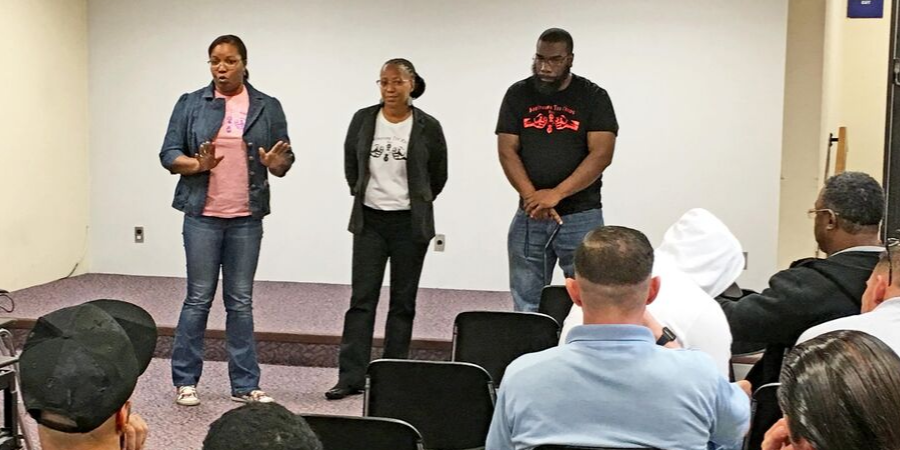
Calvin Dunbar Jr. doesn’t sugarcoat the life he lived as a younger man. It’s one of the most powerful motivations for the life he leads today, he says, particularly as president of Destroying The Chains, a nonprofit that helps people with criminal records navigate the process of securing a pardon and employability.
“I was a knucklehead growing up,” the Waterbury native says. “Even though I had a job, I wanted more money. I started selling drugs. I was running with the wrong people. I was carrying guns.”
Eventually, police raided Dunbar’s home. He was arrested and his children were put into foster care. “I had to change my mindset because now my kids were suffering for decisions that I had made” he says. “I couldn’t just do it for myself. I had to do it for my kids.”
After serving his time, he says, “I started going to church. That was my first step.” His next step was applying to have his criminal record expunged, which can be time consuming. Through the state, an applicant can request erasure of a criminal record or a certificate of employability, which doesn’t erase a record but makes discrimination based on that record illegal.
Dunbar’s criminal record was expunged with the help of a program run by Burning Bush ministries. He has patterned the work of Destroying The Chains after that program.
“I want to give them the resources that I didn’t think I had,” he says. “A lot of people are going to lawyers, spending thousands of dollars for help, but I do it for free. The most that they are spending is $100 and that’s just to get their records and fingerprints. … I want to show them that you can do it. You can get a job.”
With help from a $1,200 grassroots grant from Connecticut Community Foundation, Dunbar, his wife Salena (secretary), and Shawn Gaston (vice president) launched Destroying The Chains, which offers free monthly pardon and employability workshops.
The Foundation’s grassroots grants are available to Waterbury residents and to Waterbury-based nonprofits with budgets under $150,000, and aim to support equitable efforts to revitalize communities, influence local systems and foster youth leadership.
Since the Destroying The Chains began in January 2019, about 100 people have attended Saturday classes to learn what paperwork to file with which state agency, among other procedures, to address their criminal records and establish their employability. Every other month a representative from the state Pardons Board runs an educational session.
The Foundation’s grant has helped Destroying The Chains with the expenses of hiring speakers and meeting facilitators, purchasing supplies and printing flyers. Meeting space at the WOW NRZ Community Learning Center in Waterbury is free.
“The grant from Connecticut Community Foundation is greatly appreciated,” Dunbar says. “Instead of using our personal money, we are able to use the grant to help keep Destroying The Chains up and running.”
Dunbar, who works at Chapel Memorial Funeral Home, is a model of the kind of success Destroying The Chains intends to achieve. He is pursuing an associate’s degree in mortuary science with the intent of becoming a funeral director and an embalmer.
He says he loves to tell his story of overcoming the legal restrictions and stigma that weigh on people after they have served their time. “The way I feel is if I can get through it, they can get through it.”
Top photo: Salena Dunbar, Shawn Gaston, and Calvin Dunbar of Destroying The Chains share their work to help people rebuild their lives after leaving prison. Photo courtesy of Silas Bronson Library







